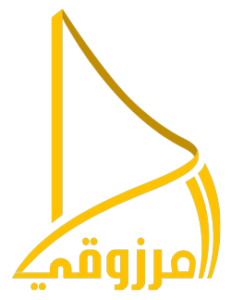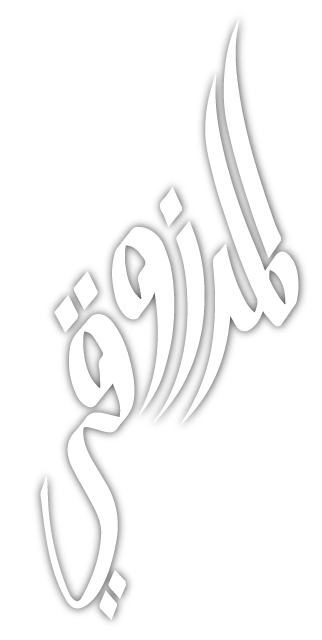Questionnaire for H.E. Mr. Moncef Marzouki, President of the Republic of Tunisia
26-2-2014
- How the “Jasmine Revolution” brought a new breeze of life for Tunisians and how it is still proving as a great milestone in economic enhancement of the country?
The Jasmine Revolution is the international name of what we call in Tunisia “the Revolution for Freedom and Dignity” which opened a new page in the history of our country. Our revolution has marked Tunisia solemn entry into the community of democratic nations and has demonstrated our political maturity and our determination to reject the authoritarian modes of government and our aspiration for an inclusive political system opened to the participation of all the components of our nation.
In addition, the Revolution broke out against poverty and social marginalization of a large section of society. In other words, its economic roots are as obvious as its political motivations. The economic system under the dictatorship engendered wealth in but benefited neither the people nor the business sector except from those linked to the family of the dictator. The dictatorship has only benefited to a small oligarchy which allied to the regime and would lock the market to investors who do not obey their diktat. Infecting the economic cycle, the dictatorship has created an atmosphere of secrecy and corruption that harmed the image of Tunisia among foreign investors.
Today, it is our priority to win back investors’ confidence in our national economy, offering an atmosphere of transparency and good governance to anyone wishing to invest. This will help us to profile the great economic potential of our country and to return to growth, which will be established this time on a solid foundation.
- It has taken almost two years for the political parties in Tunisia to draft the country’s new constitution. How it has opened the way to a new democratic era three years after the uprising that set off the Arab Spring?
The Tunisian Revolution demanded an overhaul of the social and political contract that organizes the life of the nation. This has resulted in the election of a National Constituent Assembly in October 2011, which immediately embarked on the difficult task of giving the country a new constitution able to reflect its aspirations for democracy. After two years punctuated by difficulties and even crisis , the Assembly showed Tunisians that they are able to establish together for the future of their children, and abroad that democracy is a universal aspiration and not a cultural exception of certain nations without others.
In its content, this new constitution is comparable to those of many democratic nations in the world. Besides guaranteeing fundamental freedoms and much more, it reflects a highly developed concern over the rights of future generations to a healthy natural environment, for example, and good governance of the country’s natural resources. It is a solid foundation for the country to assert its democratic and progressive vocation
- Recently the world leaders have attended the ceremony for the formal adoption of new constitution and praised t as one of the most progressive constitutions in an Arab nation. Give us an insight.
After two years of a long and enduring process to search a balanced consensus, the high number of MPs voting on the final constitution has been a reward for all Tunisians. Indeed, 200 MPs on 216 have voted for the final version of the document, this proves that the new constitution has gained legitimacy by being representative to all the Tunisian people. We are proud of our progressive constitution which the first in the Arab and Muslim world to guarantee freedom of conscience. It is also pioneering in addressing climate concerns, obligating transparency in public contracts especially link to natural resources extraction, and in asserting full equality between men and women, and parity between them in political representation.
The overwhelming international praises and recognition does increase that legitimacy and propels Tunisia as a model for the region and the world. As I said so many times, the aspiration of the Tunisian people, the responsibility we’re carrying and the hope we are representing for other countries that followed our lead, had put an incredible positive pressure on us which gives us no choice than to succeed. Nations that partner with Tunisia are ultimately embarked by our determination to succeed.
- It’s no surprise to see investors taking their money to Tunisia in a bid to reap the rewards. What exactly makes the nation appealing for investors?
We are happy to see more investors trusting Tunisia and participating to the success of our democratic transition. This trust we owe it first to the Tunisian people’s resilience and aspiration to live in a corruption-free environment with better rights and freedom. Companies will thrive in the kind of business environment that Tunisia is offering, because every citizen became a watchdog and curbing corruption has become a priority for our government.
Our revolution has unleashed a world of all-is–possible in which our youth are expressing its eagerness to participate by bringing in an impressive creativity. Our people are smart and creative; and I like to think that if they managed to kick out a dictator and to build a democracy they can help turn around any business!
- What action plan does your government is undertaking to increase the economic contribution of the community?
My government has taken all the indispensable steps to improving the business environment through attractive fiscal measures, anti-corruption policies and a streamline of administrative process which will decrease the red tape. By the end of the year we are hoping to divide by two the time needed to open a business which will ultimately provide a flourishing and stimulating business environment where companies will find every service they need.
Historically, Tunisia has maintained commercial relation principally with Europe and that dependency has not been to the advantage of our country. As prime responsible for foreign relation policies I have led effort to diversify our relation with other countries and more specifically with Africa, India and South America.
- How the government is tackling the job crisis being faced by the “Graduate unemployed youth”?
The job crisis faced by graduate unemployed is principally explained by a disconnection between academia and the business world and the lack of business opportunities. Our government is currently looking into strategies to develop vocational training and connect businesses with universities in order to have a better match and understanding of the kind of skills needed on the market.
We aim to encourage young promoters, and innovative start-ups, by facilitating funding for micro projects. We know that helping to unleash the creative potential of the youth and invest in transforming those ideas into project will create jobs. The Tunisian youth has an extraordinary capacity to dare and in economy, daring is actually what we need.
In Tunisia, we were fortunate enough to have a vibrant civil society. Since the revolution, when this civil society was liberated from the control of the dictatorship, this sector has absorbed many unemployment youth. That sector is a priority not only because it represents a motor and a guarantee for democracy, but economically speaking it has promises.
.
- Tunisia has been showing greater interest in the ITEC Programmes of Government of India. How do you think these programmes will support and transform the phase of development and employment in the country and what benefits would be enabled for public?
Tunisians, like myself who had the privilege to visit India, have always been fascinated by the largest democracy in the world. Our non-violent civil movement that lead to our revolution was largely inspired by India and we continue to be inspired by this emerging economy.
Since 2011, a number of Tunisians had the unique opportunity to take ITEC trainings in India and we already witnessing the added-value of these new skills brought back to our country. We would like to increase the number of trainees and strengthen our bilateral relation because we believe that India is the best model that can share with us how to turn around Tunisia’s economy, how to boost the high tech sector and how to sustain our newly born democracy.
- Last message
we do know that we have to tackle a lot of social and economic problems , that our democracy is still fragile , that the international environment is quite dangerous , but because we succeeded our peaceful revolution , because we reached a difficult consensus about the constitution , because we have the full support of our people and the democratic countries ,.We do know also that we could become a model for the whole Arab world if we achieve our goals … this why we are full of hope and energy ….Pray for us and come to Tunisia . You like the country and the Tunisians
—E

